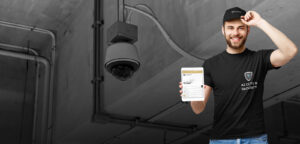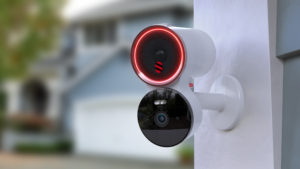How to Install a Security Camera – Do You Need Professionals?
How to Install a Security Camera – Do You Need Professionals?
If you want to install a security camera yourself, here are some tips. First, you should test the equipment thoroughly. You can do this by setting up a dry run in the area where you plan to install the camera.
This will allow you to evaluate the camera’s feed and Wi-Fi signal strength. You can also check for issues such as lens glare and field of view.
In this blog we will discuss important things to consider during installation of security cameras.
Installation of a security camera
Before installing a security camera in your home, you must know how to install it. Professionals can help you with the installation process. They will also provide you with a warranty, if applicable.
Also, these professionals may be bonded, which ensures your safety. In addition, local codes, homeowners associations, and apartment managers may require professional security camera installations.
To ensure a successful installation, it is necessary to take a few measurements of the area that you wish to cover with the camera.
This way, you will know where the camera should be placed and which angle should be used to install it. If you have a large property, it may be best to install multiple cameras so you will not have any blind spots.
While most security cameras are designed to be installed by the owner, some may require specific licensing.
These licenses vary from state to state. For example, you may need a low-voltage or contractor’s license. If you need help determining which licenses you need, research the requirements for your state.
Choosing a security camera
Choosing a security camera for your home can be a complex process. You need to consider many factors, including resolution, special features, the field of view, and more.
It can take weeks to decide which camera will meet your needs. Fortunately, you can hire a CCTV consultant to help you make the best decision for your home.
If your camera is outside, you need to consider a weather-resistant camera. It should be able to capture clear images even in low-light conditions.
Look for the IP (Ingress Protection) rating, which will tell you if the camera is protected against the elements. Whether or not your security camera is weather-resistant depends on where you live.
The image quality of your security camera is another important factor. Higher-resolution cameras provide clearer images because they capture more visual information.
Also, they allow you to zoom in on specific images. Higher-resolution cameras also offer audio recordings. These can be useful in deterring criminals and identifying people in the footage.
Wiring a security camera
The first step in wiring a security camera is determining where to mount it. This is typically done by mounting the camera on a wall or ceiling.
You must ensure that the wires extend from the wall to the camera. You also need to consider the distance between the camera and the subject.
It is essential to mount the camera at an angle that can capture all of the critical areas of your property. It should also be mounted at a spot that won’t shake.
Wired security cameras transmit video and audio signals through wires to a central hub. This hub can be located inside or outside your home and viewed live or recorded later by anyone in the network.
Wired cameras also require a power cord to be attached to the camera. Typically, these cameras receive power from a hardwired cable or a PoE cable. The camera must be installed near a power source and should be mounted on a wall to be effective.
Wired security systems require more wiring than wireless ones, but they are generally less vulnerable to hackers.
Wired security systems can be more expensive and require more installation effort than wireless cameras. If you decide to go with wired security cameras, be sure to consider where you’ll place the cameras, as these can easily be moved to different locations.
You also want to ensure that they’re mounted high enough to connect to a Wi-Fi network.
Choosing a security camera installer
Choosing a security camera installer is crucial because your home or business security needs can be very complex. Selecting a company that knows what they are doing and has the proper equipment can save you time and money.
You should also be aware of the reputation of the security camera installation company you choose. You can research the company you’re considering on the Internet. Ensure the company has a good reputation in the community and the experience necessary to install your security cameras properly.
A reputable company should be honest and upfront with potential customers.
They should ask questions about your business, such as whether you have an indoor or outdoor location and whether you’d like to have night vision cameras and motion detectors. They should also ask if you’d like to install cameras in a specific room or a large area.
These questions can help you choose the right company for your needs.
In addition to asking about the company’s reputation, you should ask about their warranty policies. Ensure the company is fully insured and licensed before allowing them to work on your property. This is important because they’ll work inside your home and should use proper safety precautions.
The Bottom Line
Your search for a suitable CCTV camera installer finishes with AZ CCTV.
With years of experience in this domain we ensure to provide our customers the best security camera installation services.





